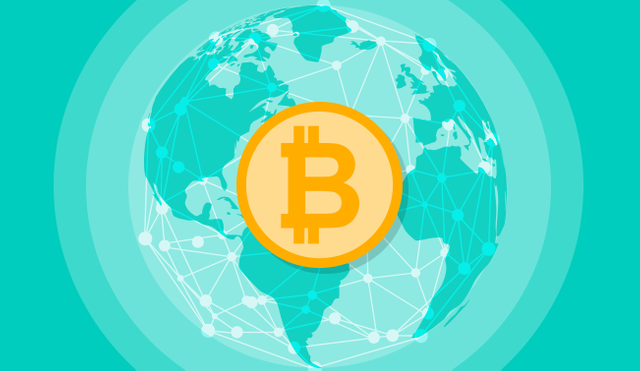
As part of a well developed first world country, sometimes I lose sight of how crypto can go on to support under-developed areas of the world where many don't have or don't want access to what little banking infrastructure there is. As much as I don't always like how the banks, financial institutes, and governments operate in my country, It's definitely not as bad as it could be. Inflation rates are low and steady. There are always options available. Value holds quite solidly over time.
I view my investments into crypto as more on the tech-heavy side. Quite interested in where blockchain, dApps, and smart contracts can take the world on a business level. When I think about cryptos as a payment system or currency to replace what we have in place currently, I see a tough road ahead. The powerhouse countries already have a firm grasp of economic finances within them. Groups of mega corporations making sure they all get a piece of the pie. But then I read an article today in regards to the great growth of cryptos in emerging countries.
Regions such as Africa, South East Asia, and India all look set to be a real proving ground for crypto as a currency. And I thought to myself, yes, this is perhaps where it may be able to succeed. These areas really are in need of an alternative for its citizens. Many people don't even have a bank account, and if they do, the services are limited and take advantage. Corrupt governments and wild inflation make it difficult to be apart of the system. So when I think of it, THIS is where cryptos as a currency can start to stretch its legs.
The Numbers:
In the Philippines, coins.ph is an app with over 2 million users. The app is accompanied by arrangements with tens of thousands of stores which serve as cash pickup and deposit points around the region.
In 2014, only 34% of adults in sub-Saharan Africa had a bank account according to the World Bank.
Global wallet and exchange Luno reported 2000 Bitcoin worth of transactions in November 2017, when the coin’s price was hovering in the $10,000 range, and approximately 37% of those transactions occurred in South Africa.
Going forward:
Areas such as South Africa really do seem poised to take the next step in actually USING Bitcoin (ect.) as it was meant to be. All that's required most of the time is a mobile phone, of which most of the population do have access to. Regulations and crushing restrictions could still come in, yes, snuffing out the movement but up to this point the governments have gone with a 'hands off' approach.
Individual cryptocurrencies are also deliberately concentrating on the world's underbanked populations. For example, Stellar Lumens is partnering with Flutterwave, which plugs into the M-Pesa system and is used by more than 20 million customers in Sub-Saharan Africa. It's also inking retail deals for acceptance in Indonesian stores and using a unique distributed exchange system that helps overcome some of the problems with low liquidity that might get in the way of rapid adoption.
So while most of the news attention goes to the USA, China, Korea, Japan, and parts of Europe, it's places like South Africa and S.E. Asia that may be giving real world usage to these projects.
Sources: newsbtc.com, finder.com.au
I am happy you brought up Stellar as their main target is the unbanked and providing options for remittances at nominal costs. They approach this at a local level as opposed to Ripple who is focusing on inter banking transfers, essentially trying to replace the SWIFT system.
Downvoting a post can decrease pending rewards and make it less visible. Common reasons:
Submit
Good reply. I have high hopes for Stellar. They are one to watch. I think they really have an achievable goal and a good use case for what they want to do. There is a great demand for near instant, low cost exchanges of money and assets. And because it can run behind the scenes of existing business models, I think it'll be going places.
Downvoting a post can decrease pending rewards and make it less visible. Common reasons:
Submit